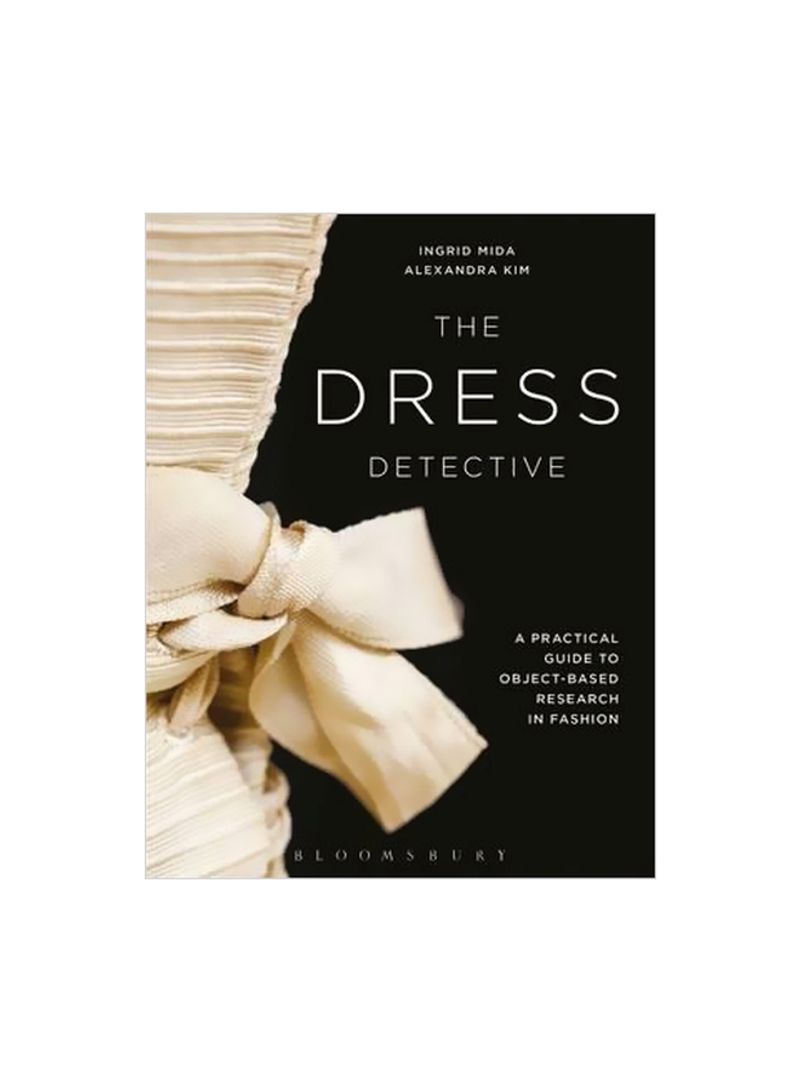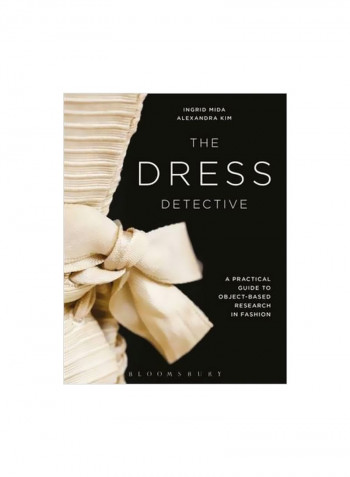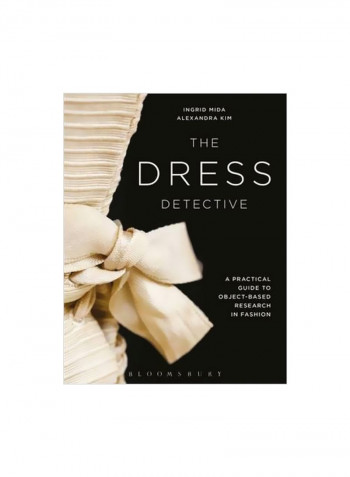The Dress Detective : A Practical Guide To Object-Based Research In Fashion Paperback
Recommend
Sort by
Rating
Date
Specifications
Author 1
Ingrid Mida
Book Description
The Dress Detective is the first practical guide to analyzing fashion objects, clearly demonstrating how their close analysis can enhance and enrich interdisciplinary research. This accessible book provides readers with the tools to uncover the hidden stories in garments, setting out a carefully developed research methodology specific to dress, and providing easy-to-use checklists that guide the reader through the process. Beautifully illustrated, the book contains seven case studies of fashionable Western garments - ranging from an 1820s coat to a 2004 Kenzo jacket - that articulate the methodological framework for the process, illustrate the use of the checklists, and show how evidence from the garment itself can be used to corroborate theories of dress or fashion. This book outlines a skillset that has, until now, typically been passed on informally. Written in plain language, it will give any budding fashion historian, curator, or researcher the knowledge and confidence to analyze the material in front of them effectively.
ISBN-10
1472573978
ISBN-13
9781472573971
Language
English
Publisher
Bloomsbury Publishing PLC
Publication Date
19/Nov/15
Number of Pages
224
About the Author
Ingrid Mida is a dress historian and curator. Responsible for the revival of the Ryerson Fashion Research Collection in Canada, Mida has written for various publications including Dress, Clothing Cultures, Costume Journal, Fashion Projects, Modeconnect, Worn, and Worn Through. Alexandra Kim is a dress historian and museum professional. Kim has worked at the Ashmolean, Chertsey Museum, and Buckinghamshire County Museum and was most recently a curator at Kensington Palace, UK. She now combines research and writing with her work as an editor of Costume, the journal of the UK Costume Society.
Author 2
Alexandra Kim
Editorial Review
Detective work is integral to fashion history research, yet very little has been written on how to go about it. Ingrid Mida and Alexandra Kim fill that gap in the bookshelf with The Dress Detective. ... A concise, well organized, and extremely accessible book that deserves a place on the bookshelf of anyone interested in fashion research. -- Katy Werlin * The Fashion Historian * Both accessible and academic and a significant contribution to the study of [the history of Western dress] ... This book is well designed and a pleasure to look at. It functions as a practical manual, a `how to' book, a reference work and an enjoyable read for anyone interested in this subject. * Costume * Enormously useful for the budding fashion historian or curator, this publication provides a textbook approach to the study of dress artefacts as a source for research. The authors, both of whom have curatorial backgrounds, provide a practice-based framework and a range of interesting case studies to instruct readers in the methods for observing and reflecting upon objects of dress. This accessible guide will surely become a crucial source for students of fashion studies. * Catwalk: The Journal of Fashion, Beauty and Style * For post-secondary students on fashion courses with access to study garments, or for the novice researcher investigating in a museum or private collection, this book would be an invaluable resource. Even individuals with experience in handling fashion objects may glean new tips, or be reminded of best practice when closely examining dress objects, or in relating these findings to broader socio-economic, historical, or theoretical contexts. This book would also be a useful addition to the shelf of fashion collections in museums, to assist when training staff and volunteers in collection inventory or exhibit preparation. The Dress Detective gives clear clues to becoming a sartorial sleuth. * Museum & Society * The Dress Detective provides an easy-to-use guide for how to look at a dress object and to consider its meaning. The framework, which the authors call "a slow approach to seeing," involves three steps: observation, reflection, and interpretation. It is a revision of Prown's model of description, deduction, and speculation. * ITAA Online * For the first time, The Dress Detective offers a clear and systematic framework for the object-based study of dress. Advocating a `Slow Approach to Seeing', it arms readers with the tools to learn this important research skill while encouraging them through well-chosen case studies to measure their findings against inter-disciplinary and theoretical writing on fashion. * Edwina Ehrman, Fashion Curator and Historian, UK * This is the book we have been waiting for without realizing it! The Dress Detective offers a rigorous and entirely accessible guide to examining and thinking about dress using objects as evidence. Case studies and checklists guide the reader - specialist and non-specialist alike - to explore and articulate garment construction, materials, design, alterations and the nuances of wear. I have no doubt it will become a seminal text. * Amy de la Haye, Joint Director of the Centre for Fashion Curation, London College of Fashion, UK * The Dress Detective is a smart, accessible text that provides a long-overdue methodology for examining clothing and accessories. This book is essential for new students, but its concise framework will also be useful to seasoned researchers. Diverse, thorough case studies demonstrate the combination of visual analysis, history, and theory that is crucial to fashion studies today. * Colleen Hill, Associate Curator, The Museum at FIT, New York, USA * A long-anticipated guide to object-based dress research ... I recommend this outstanding volume to students and faculty alike. * The Journal of Dress History * This book operates as a kind of practical aid, offering a comprehensive methodological framework to both scholars and students. * Textile History * This book is highly successful on two fronts: presenting the expansive and diverse histories demonstrated in dress objects and uniting those multivalent perspectives by modelling best practices for object-based research. * Fashion, Society & Popular Culture *



